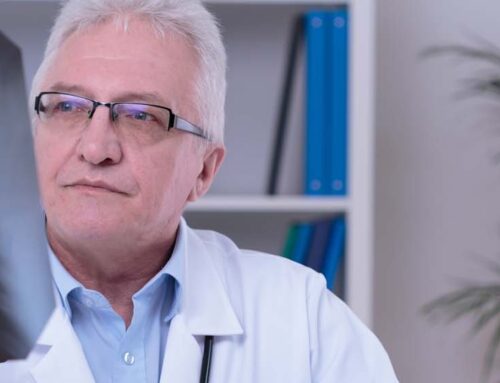 Case Study 1: Sharon Brown never smoked a cigarette in her life, but she died of lung cancer at the relatively early age of 43.
Case Study 1: Sharon Brown never smoked a cigarette in her life, but she died of lung cancer at the relatively early age of 43.
Case Study 2: Harold Dunes smoked a pack and a half of cigarettes per day for sixty years. He never contracted lung cancer, and died in a car accident at the age at 95.
The Question: “Why do many heavy smokers evade lung cancer while others who have never lit up die of the disease?” At Washington University School of Medicine in St. Louis researchers have claimed that some people have a key immunity to lung cancer. Utilizing mice in their lab studies, they discovered tell-tale evidence that genetic diversity determines whether or not the animals develop a susceptibility to lung cancer.Due to their genetic diversity, some of the mice had numbers of “killer cells,” which attack and destroy tumor cells, whereas others had very few of these individualized cells.
The human comparison was obvious to the researchers. It seems that humanity, like its humble friend, the mouse, has a huge diversity in their immune system capabilities. Author Alexander Krupnick, MD, a thoracic surgeon at the Siteman Cancer Center at Barnes-Jewish Hospital and Washington University School of Medicine, stated . “Overall, humans are genetically very similar but their immune systems are incredibly diverse.”
He added, “Our findings add to the growing body of evidence suggesting that innate differences in immunity may determine not only a person’s susceptibility to colds but also to lung cancer.” In the future, Krupnick and his colleagues will be researching what types of diversity exist in the killer cells. Based on the findings in mice, Krupnick says he and his colleagues now are validating their assumptions that humans have a similar genetic diversity involved in the development of their natural killer cells.
Part of their analysis includes comparison of the blood of several groups:
1. They will study heavy smokers, with and without lung cancer
2. They will study never-smokers, with and without lung
3. They Will look for the differences at the bimolecular and genetic level. Krupnick, who is an associate professor of surgery, stated, “We want to know whether heavy smokers who don’t get lung cancer have natural killer cells that are somehow better at destroying newly developing lung cancer cells,” He added,“And, by comparison, do patients who have never smoked but develop lung cancer have weak natural killer cells?”
 For the mouse study, the scientists assessed three groups of mice. They all had varying susceptibilities to lung tumors. All of them were exposed to a carcinogen, then grouped according to susceptibility.
For the mouse study, the scientists assessed three groups of mice. They all had varying susceptibilities to lung tumors. All of them were exposed to a carcinogen, then grouped according to susceptibility.
Group I: (We’ll call them, “The Good.”) This group refused to show any evidence of the tumors and remained cancer-free.
Group II: (We’ll call them “The Bad.”) Moderate tumor growth occurred in the second, lightly cancer-riddled group.
Group III: (“Well call them, “The Ugly.”) The third group enthusiastically embraced the disease, with many large tumors in evidence. The scientists deducted that diversity among the killer cells, how many there were, how strong they were, affected each mouse’s resistance to the cancer.
The Twists: When the researchers subtracted the “natural killer cells” from the mice with antibiotics, the resistant ones suddenly developed large, cancerous tumors. In another phase of the experiment, the scientists manipulated the immune system of susceptible mice, with a bone marrow transplant. This process actually did change the genetic make-up in the mouse’s favor, and blocked the development of lung cancer. “Their studies indicate that natural killer cells, not other types of immune cells like T cells or inflammatory cells, are responsible for this phenomenon.” (For a little more information on T cells, click here.)
The researchers also traced the genetic diversity of the “natural killer cells” in the mice, and discovered them to be on a region of chromosome 6. This chromosome also includes numerous genes that influence the effectiveness and potency of those all important “natural killer cells.
Next, Krupnick and his team want to discover:
1. Do natural killer cells influence lung cancer susceptibility in people?
2. What is unique about the “killer cells” of people who are obviously resistant to lung cancer?
3. Are some people’s “killer cells” stronger or are there just more of them than in the lungs of people who eventually develop lung cancer?
He said, “These answers will determine our next steps.”
The Florida Lung doctors hope those “next steps” will lead to the discovery and development of new drugs that will help if not heal, future lung cancer patients all over the world. Such a discovery would truly, “Make our day.” Meanwhile, naturally, The Florida Lung Doctors want you to resist the urge to smoke. We can not yet count on how many of those “killer cells” you might have on your side, or in your genes.





